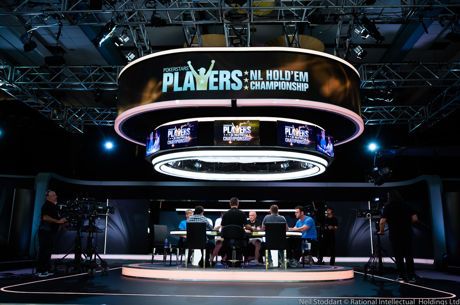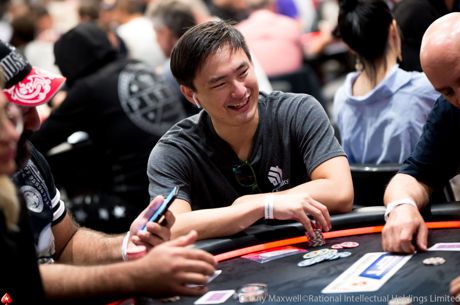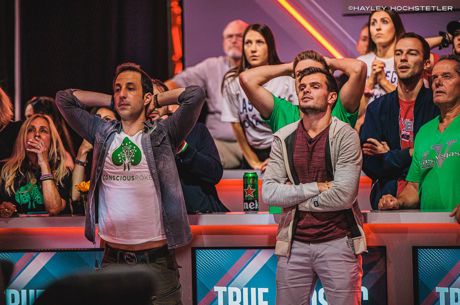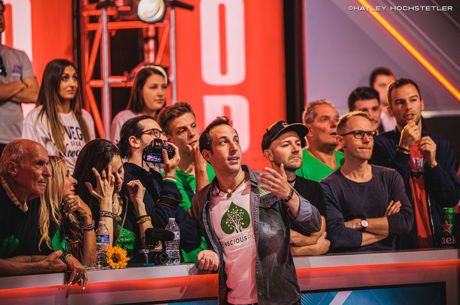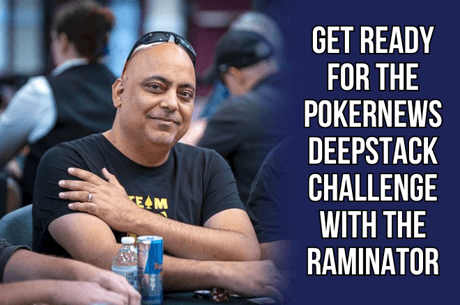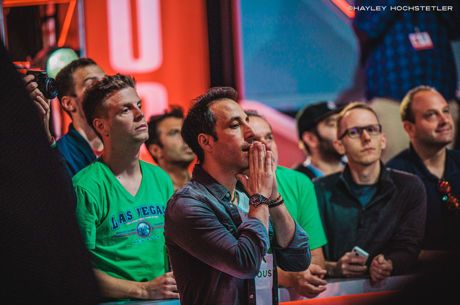Folding Pocket Aces Preflop: Is There Ever a Spot?


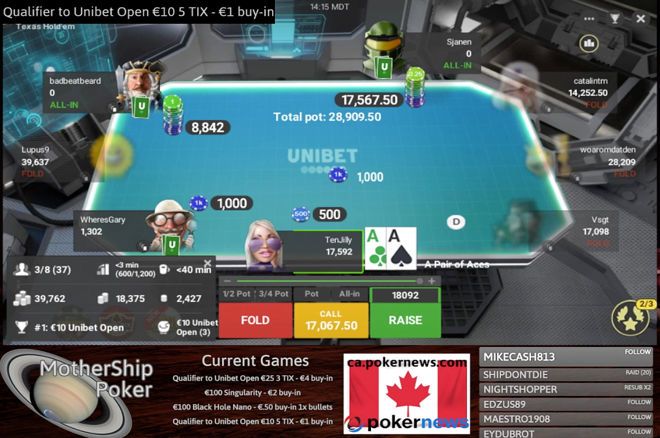
PokerNews Canada Editor Lyle "TenJilly" Bateman recently found himself in an interesting situation while playing in a Unibet qualifier table — one of those rare instances in no-limit hold'em when folding aces preflop actually seems like a viable option.
They were just three eliminations from the bubble bursting in this satellite event and everyone winning tickets to the next tournament. Bateman picked up A♣A♠ in the small blind. He watched an early position player shove all in for about 8 big blinds, then the next player reshove over that with a stack roughly identical to Bateman's (about 17.5 BBs). Meanwhile there was a super-short stack in the big blind as well who would probably be calling all-in, too, no matter what.
It would always be a reshove in a normal multi-table tournament, but in a satellite and so close to the "money" it becomes a trickier spot. What would you do?
Bateman consulted with Unibet Ambassador and co-author of Poker Satellite Strategy Dara O'Kearney for his input, and he provided an excellent analysis of the hand and situation below.
This is a super interesting spot because we are a significant favorite to win a seat whether we fold (by virtue of our stack) or call (by virtue of our hand).
In satellites, there are often "lesser of two evils" spots, but this is the opposite — a "better of two good options," if you will. It's complicated by the fact that there are so many possible outcomes whether we call or fold.
If We Fold
The big blind will usually call with any two, and the biggest stack will usually win the three way all in as he has by far the strongest range. However, any three of the players could potentially win the main pot, and either of the bigger stacks the side pot when the small stack wins the main, so the five other outcomes that are possible when we fold and the big blind calls are:
- The small stack could win the main pot, and the big stack the side pot
- The small stack could win the main pot, and the middle stack the side pot
- The middle stack could win main and side pots
- The big blind folds and the smaller stack wins
- The big blind folds and the bigger stack wins
If We Call
When we call there are even more possibilities. We can of course use a solver like HoldemResources Calculator (HRC) or ICMizer to get the exact answer, but that's not possible in game so we need some method to make a guesstimate from first principles. The two key things to do in tough spots like this are:
- Simplify the game tree as much as possible
- Use the gorilla maths method explained at length in Poker Satellite Strategy
With regard to the first item, when we fold, we can discard the more unlikely outcomes such as the smaller stack folding, or winning the three-way all-in. Not only are these unlikely, but they won't massively change our chances of a seat, so we can disregard them.
In fact, all we really need to consider is the most likely outcome: the big blind calls, and the big stack knocks him and the other guy out. So if we fold, most of the time we will be on the bubble 4/6 with 17,592 chips, essentially equal with 5/6, and a bit ahead of 6/6 (with 14,252).
If we use the gorilla maths method outlined in Poker Satellite Strategy (or our own intuition) we can work out that in this scenario the 40K stack will be about 95% for a seat, the two 30K stacks roughly 90%, our chances and those of the guy we are level with roughly 77.5%, and the short stack 70%. (If you run the actual ICM calculation this is very close: within about 1%, in fact.)
Similarly, when we call, the most important outcome in terms of assessing our downside is when we lose to the bigger stack (we are basically out, almost 0% for a seat when that happens). If we beat him but lose to tiny big blind stack, our chances actually go up, while if we beat him but lose to the 8,842 stack we approximately break even both in terms of chips and chances of a seat.
So we can simplify this part of the game tree to what happens when we call and lose to the big stack, which is we lose about 75% of a seat (dropping from the 77.5% we have if we just fold to some small number, let's say 2.5% for simplicity). If we call and win we win the seat, gaining 22.5% of a seat, meaning losing is over three times as bad as winning, so we need to be a better than 3-to-1 favorite against the big stack's range. His range should be jacks plus and ace-king. Against this range, queens has only 47%, kings 63%- and ace king 63%. Aces, however, has 83%, so it's a call.
Conclusion
I ran this in HRC, which confirmed aces (and only aces) is a call, making us roughly 8.5% of the value of a seat (about the margin of profit we have over 75% equity we figured out we roughly need, so our gorilla maths got us very close).
One Final Point
Folding in this spot turns out to be a theoretical mistake, but not a massive one (8.5% of a seat). By contrast, calling with queens (which I bet most people would in this spot) loses us almost 24% of a seat. Many would call ace-king, which is even worse (it loses 28%), while even calling with kings turns out to be a bigger mistake (over 9%) than folding aces.
The point I'm making here is that when in doubt, when you don't have time to make the rough gorilla maths calculations in game and it feels close, err on the side of folding. An incorrect call is almost always a much bigger mistake than an incorrect fold.
Curious about what Bateman decided and how the hand played out? Watch below.
This strategy article originally appeared on PokerNews Canada.


